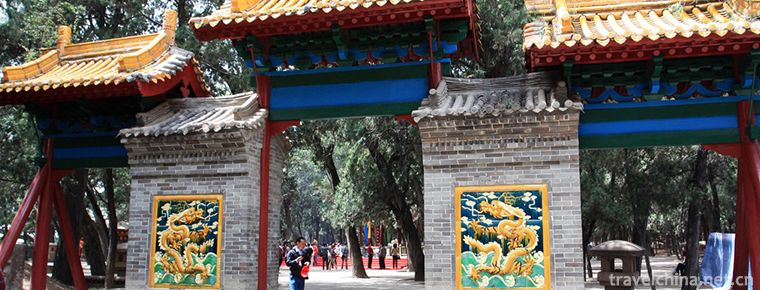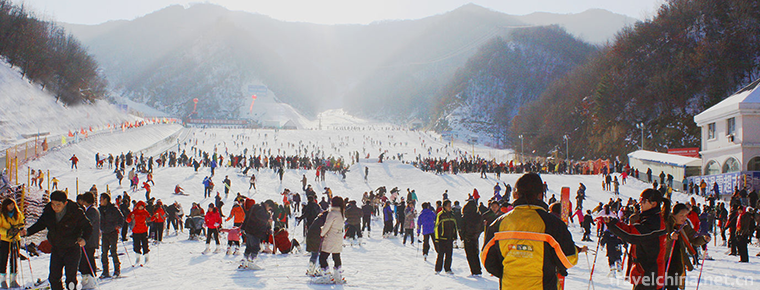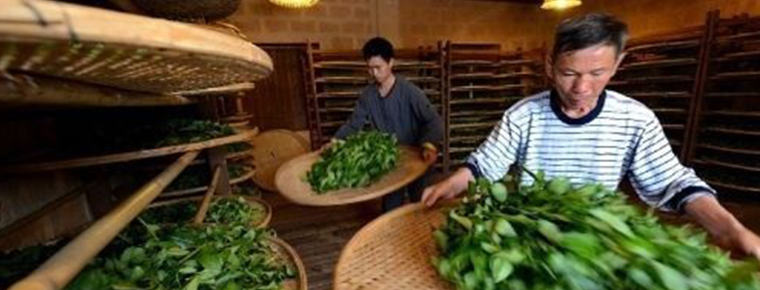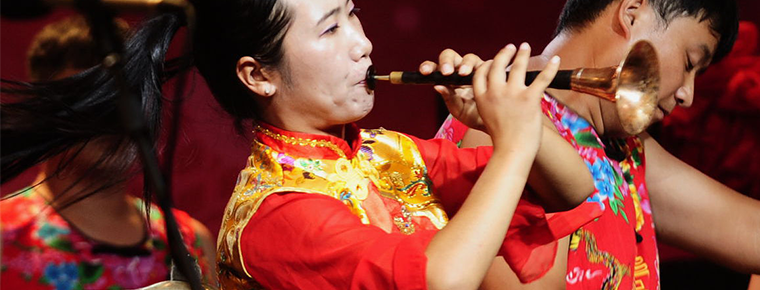Ocean song
Ocean song
Fisherman's chant is the traditional folk song of Zhoushan Islands in Zhejiang Province, which belongs to the general name of the local boat and fisherman's chant. It is the folk oral music passed down from generation to generation by fishermen and boatmen in Zhoushan Islands. It is closely associated with fishing boats, transport boat operations and fishermen (boat) working on the sea and shore. It is one of the representative folk labor chants of Zhejiang Province and even China. The integration of Chinese folk songs (Zhejiang Volume) ) Both "Selected Chinese Fishing Songs" and "Selected Chinese Fishing Songs" are recorded and recorded.
On June 7, 2008, the ocean slogan declared by Daishan County, Zhejiang Province, was approved by the State Council and listed in the second batch of national intangible cultural heritage lists.
Heritage serial number: 596 II-97.
historical origin
Zhoushan fishermen's song originated from Zhoushan and Daishan islands in Zhoushan fishing ground, and has certain influence in southeastern coastal areas of China.
Zhoushan Fishing Ground is one of the four largest fishing grounds in the world, ranking first in China's fishing ground. It abounds in big yellow croaker, small yellow croaker, hairtail and cuttlefish. It is known as the "Fishing Capital of China". Zhoushan is an archipelagic city with 1 390 islands, including Hai, Putuo and Daishan and Shengsi counties. Zhoushan Island is the largest, followed by Daishan Island. Zhoushan is located in the southeastern coast of China, the center of the coast of the mainland of China, and the famous outlets of the Yangtze, Qiantang and Yongjiang rivers. Daishan is a large marine county with abundant fishery resources, especially famous for its large yellow croaker. From the mid-Qing Dynasty to the early days of the Republic of China, tens of thousands of fishermen gathered in the southeastern coastal areas of Shandong, Jiangsu, Zhejiang, Fujian, Guangdong and Taiwan to round up large yellow croaker in Daiqu Ocean, and stopped sailing in Daishan to bask in the sea.
In the old Daishan and Zhoushan islands, wooden sailboats were the main means of fishing and maritime transportation. All working procedures on board the ship rely on manual operation, and collective labor is extremely heavy. Various processes need to shout slogans to unite action and regulate mood, thus forming a rich slogan.
Representative works
Zhoushan fishermen's chant (Daishan chant) can be divided into dozens of kinds according to the working procedure, such as "Anchor-lifting chant", "Teng-pulling chant", "Rolling horn" and "Net-lifting chant". The tune is rough and bold, and has formed a series of tunes, with distinct personality and local characteristics in style.
Inheritance status
Zhou Wenli, a representative successor
In 2008, Zhou Wenli, a 76-year-old fisherman in Shengsi County, was selected as the representative successor of "Zhoushan Fisherman's Number", which enabled such famous fishermen's Numbers as "Drawing Tent Number" and "Swinging Boat Number" to be inherited. Zhou Wenli has been with the fisherman's song for 60 years since he went fishing at the age of 16. Zhou Wenli said that the song of Shengsi fishermen had a distinct rhythm and strong rhythm, which met the needs of fishery labor at that time, such as netting, anchoring, boat pulling and rolling. At the same time, chant lyrics are generally mood words, sound strong, strong rhythm.
Zhou Wenli was fond of the "Tenning Horn" because he was the vice-president of fishing boat and was responsible for the work of the tenting on the boat when he was young. When talking to the author, he specially performed the chant. The old man seemed to be in the scene when the fishing boat set sail again: "Hey, hey, hey, hey!" When he let go of his voice and shook his arm, the fishermen on the boat pulled the sail with great effort: "Come on, Ann'an has a good tongue." Everyone is in step, unified work, and the fishing boat sails smoothly...
Although it is an ancient and rare year, Zhou Wenli's voice is still long when he shouts his slogan. It is not easy to shout fishermen's chants well. Zhou Wenli summed up a unique set of experience. He said that when shouting chants, saliva should be contained in the throat. Only by rolling saliva in the throat can the voice be strong enough and the tune be better. With his unique skills, Zhou Wenli won two awards of "elegance" and "popularity" in the TV finals of "Zhoushan Fishermen's Number King". In November, he was invited to participate in the Chinese Fishing Song Invitational Competition, in which he became one of the most concerned actors on the spot with a song "pulling anchor trumpet".
With the frequent awards in the competition, Zhou Wenli has gained a certain popularity in the local area, and more people came to ask him for advice. The County Cultural Museum also recorded fishermen's chants for him as the original material for the re-creation of Shengsi fishing songs. Some people in the village persuaded him: "Fishermen's song must not be hired, once let others learn, the prize will be taken away by others." But Zhou Wenli took this teaching as a way to inherit the song of Shengsi fishermen. He pledged, "I can teach others as much as I have in my stomach." Zhou Wenli said happily that he had found a successor to teach fishermen's song.


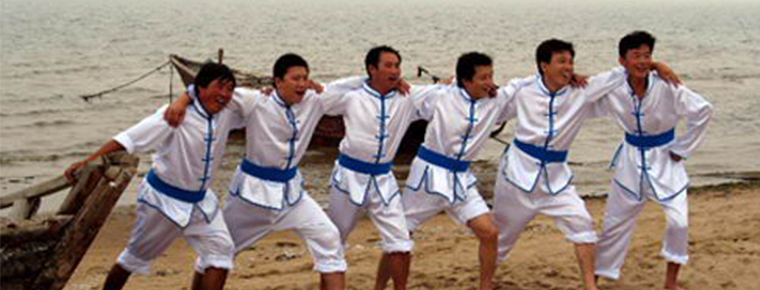
-
Chess cake
Chess cake is a special product of Tangshan District in Hebei Province. It is named for its shape like a small drum and a chess piece.
Views: 168 Time 2018-11-27 -
Taining Scenic Tourist Area
Taining Scenic Spot: World Geopark, National AAAAA Class Tourist Spot, National Key Scenic Spot, National Forest Park, National Geopark, National Key Cultural Relics Protection Unit.
Views: 181 Time 2018-12-08 -
Huangdi Mausoleum Scenic Area
Huangdi Mausoleum is the tomb of Xuanyuan Huangdi, the ancestor of the Chinese nation. It is the only Huangdi Mausoleum recorded in Historical Records..
Views: 151 Time 2018-12-12 -
The Peninsula Shanghai
Shanghai Peninsula Hotel is located on the Bund, which has a long history. It is the only new building on the Bund in 60 years. It can enjoy the Grand View of the Bund, Huangpu River, Pudong .
Views: 253 Time 2018-12-16 -
Funiu Mountain Skiing Resort
Located on the north slope of the old boundary ridge of Funiu Mountain in Luanchuan County, Luoyang Funiu Mountain Skiing Resort has the highest elevation of 2200 meters and an elevation of 1700 meter.
Views: 132 Time 2018-12-22 -
kangbaiwan manor
Kang Million Manor, also known as Heluo Kangjia, is located in Kangdian Town, Gongyi City, Henan Province (formerly Gongxian County). It was built in the late Ming and early Qing Dynasties.
Views: 192 Time 2019-01-29 -
Historic Architectural Complex in Heaven and Earth
Historic buildings in Tiandi, World Cultural Heritage, National Key Cultural Relics Protection Units and National AAAAA Tourist Scenic Spots are located in the hinterland and surrounding.
Views: 260 Time 2019-02-21 -
Production Techniques of Flower Tea
Jasmine tea, also known as jasmine fragrance, is the tea and jasmine flowers to blend, bass, so that tea leaves absorb flower fragrance into tea, tea fragrance and jasmine fragrance interactively inte.
Views: 171 Time 2019-05-04 -
Drum and percussion music in Southwest Shandong
Southwest Shandong drum music is a kind of traditional folk instrumental music in Shandong Province. It takes Jiaxiang drum music as a typical representative and mainly distributes in Jining, Zaozhuan.
Views: 325 Time 2019-05-15 -
Suqiao Flying Fork Club
Suqiao Flying Fork Club, also known as Yun Fork Club, is a local traditional acrobatics performance popular in Wen'an County, Hebei Province. The performances mainly consist of ancient forks, drums, c.
Views: 329 Time 2019-06-17 -
Mount Fulai
Mount Fulai is one of the top 40 tourist attractions in China. It is 27 kilometers away from Shunan Bamboo Sea central scenic spot and 10 kilometers away from qidonggou, a 4A tourist attraction. It is composed of more than 80 hills. .
Views: 165 Time 2020-10-16 -
Neijiang in the new China period
From December 5 to 15, 1949, the people of Neijiang and other eight counties declared liberation one after another. In 1950, the office of Zizhong Commissioner moved to Neijiang and was renamed Neijiang special area. It has jurisdiction over Neijiang.
Views: 236 Time 2020-12-16


